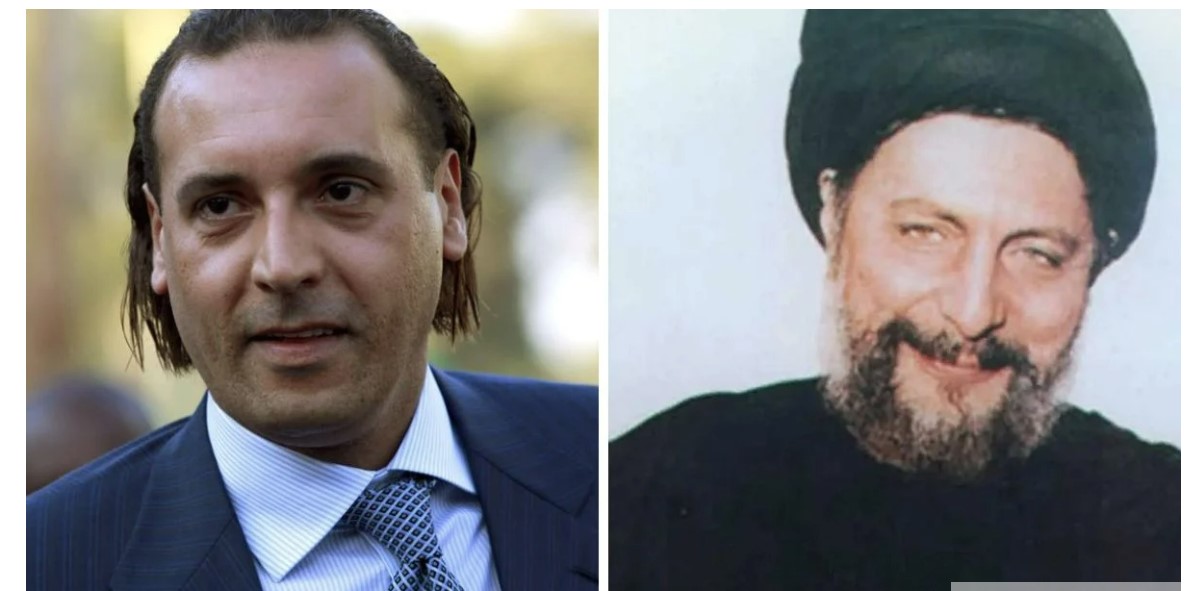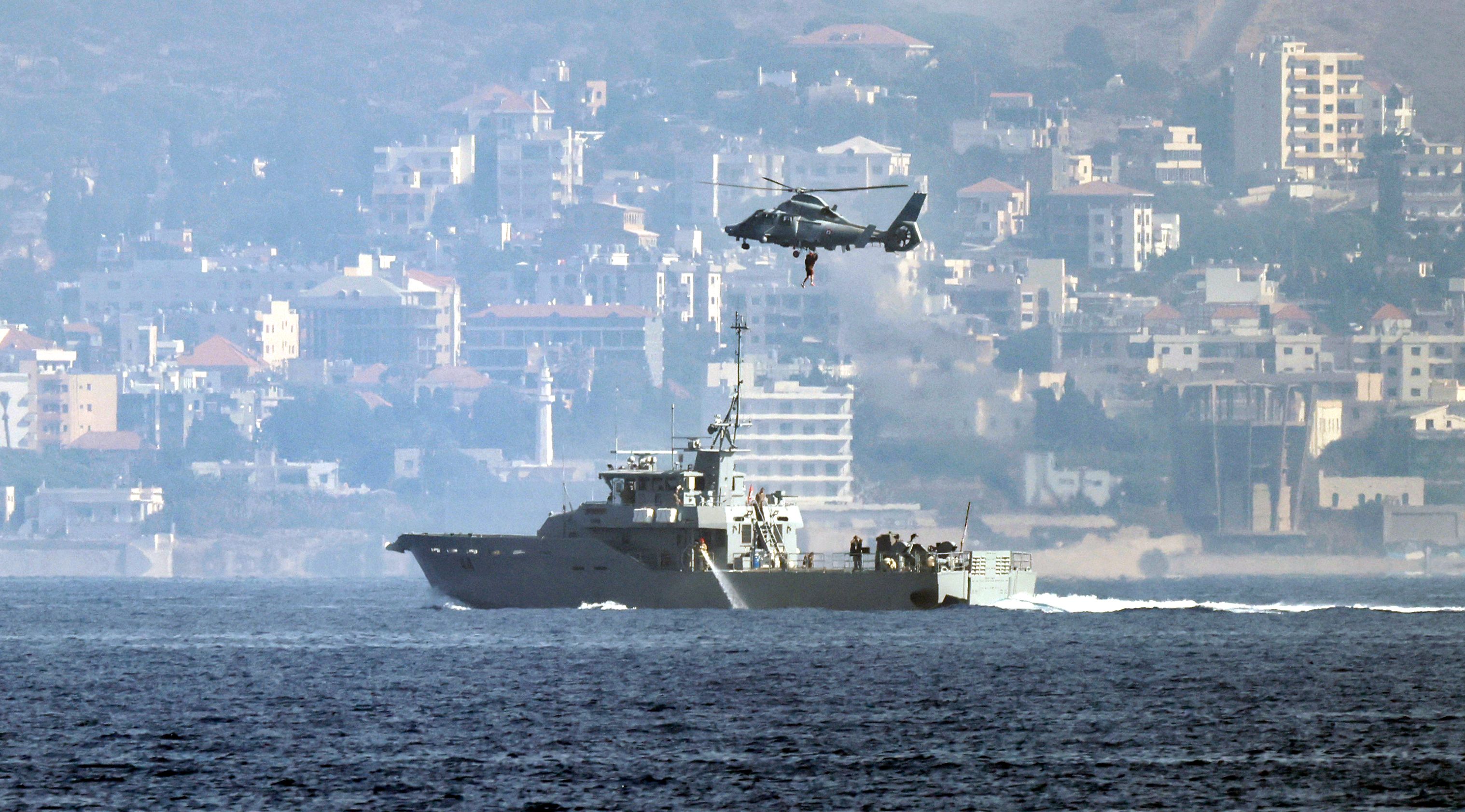
by Bassen Moure -- BEIRUT (AP) — Libya’s judicial authorities have formally asked Lebanon to release one of the late dictator Moammar Gadhafi’s sons, held without charges in Lebanon since 2015, because of his deteriorating health, officials said Monday. The health of Hannibal Gadhafi has been deteriorating since he went on hunger strike on June 3, to protest his detention without trial. He was taken to hospital at least twice since then and has been only drinking small amounts of water. According to two Lebanese judicial officials, Libya’s prosecutor general Al-Sediq al-Sour, sent a request earlier this month to his Lebanese counterpart, Ghassan Oueidat, regarding Hannibal Gadhafi. The officials spoke to The Associated Press on condition of anonymity because they were not authorized to talk to the media.
The note stated that Lebanon’s cooperation in this matter could help reveal the truth regarding the fate of a prominent Lebanese Shiite cleric, Moussa al-Sadr, who went missing in Libya in 1978. It questioned why Gadhafi was being held and asked that he be either handed over to Libya or be allowed to return to Syria, where he had been living in exile with his Lebanese wife, Aline Skaf, and children until he was abducted and brought to Lebanon eight years ago.
The Lebanese prosecutor then referred the case to Zaher Hamadeh, the investigative judge in the missing cleric's case, who is studying the Libyan request and would respond in time. Hannibal Gadhafi has been detained in Lebanon since 2015 after he was abducted by Lebanese militants demanding information on the whereabouts of the cleric. Lebanese police later announced it had picked up Gadhafi from the city of Baalbek in northeastern Lebanon, where he was being held. He has since been held in a Beirut jail. The disappearance of al-Sadr in 1978 has been a long-standing sore point in Lebanon. The cleric’s family believes he may still be alive in a Libyan prison, though most Lebanese presume al-Sadr is dead. He would be 94 years old. He was the founder of the Amal group, Arabic for “hope,” and an acronym for the militia’s Arabic name, the Lebanese Resistance Brigades. The group later fought in Lebanon’s 1975-90 civil war. Lebanon’s powerful Parliament Speaker Nabih Berri heads the group. Most of al-Sadr’s followers are convinced that Moammar Gadhafi ordered al-Sadr killed in a dispute over Libyan payments to Lebanese militias. Libya has maintained that the cleric and his two traveling companions left Tripoli in 1978 on a flight to Rome and suggested he was a victim of a power struggle among Shiites.
by The National News — The head of Lebanon’s Maronite Church called for state control over weapons on Sunday, days after a …
by arabnews.com — DUBAI: Lebanese filmmaker and actress Nadine Labaki has been announced as a jury member for the 80th Venice International …

BY MENELAOS HADJICOSTIS AND ABBY SEWELL NICOSIA, Cyprus (AP) — The United Nations refugee agency said Friday it was “extremely concerned” over the return of more than 100 Syrian nationals from Cyprus to Lebanon without being screened to determine whether they need legal protection and who may be deported back to their war-wracked homeland. The UNHCR office in Cyprus said deportations and transfers between states “without legal and procedural safeguards for persons who may be in need of international protection” are against international and European law. Such transfers could result in people sent back to a country where “they may face the risk of persecution, torture, cruel, inhuman or degrading treatment or punishment and other irreparable harm,” the agency told the Associated Press. The Cyprus government said such returns are being lawfully carried out in line with a bilateral agreement the island nation and neighboring Lebanon signed in 2004.
According to senior Interior Ministry official Loizos Hadjivasiliou, the agreement obligates Lebanon to prevent and stop illegal border crossings and illegal migration of individuals who depart from Lebanon. Hadjivasiliou told the Associated Press these individuals are returned to Lebanon, which is deemed safe and where they enjoy benefits afforded to the hundreds of thousands of refugees in the country. “Under these circumstances, we believe that they don’t face any danger and their choice to set sail toward a European Union member country is being made for clearly economic reasons.”
Khazen History


Historical Feature:
Churches and Monasteries of the Khazen family

St. Anthony of Padua Church in Ballouneh
Mar Abda Church in Bakaatit Kanaan
Saint Michael Church in Bkaatouta
Saint Therese Church in Qolayaat
Saint Simeon Stylites (مار سمعان العامودي) Church In Ajaltoun
Virgin Mary Church (سيدة المعونات) in Sheilé
Assumption of Mary Church in Ballouneh
1 - The sword of the Maronite Prince
2 - LES KHAZEN CONSULS DE FRANCE
3 - LES MARONITES & LES KHAZEN
4 - LES MAAN & LES KHAZEN
5 - ORIGINE DE LA FAMILLE
Population Movements to Keserwan - The Khazens and The Maans
ما جاء عن الثورة في المقاطعة الكسروانية
ثورة أهالي كسروان على المشايخ الخوازنة وأسبابها
Origins of the "Prince of Maronite" Title
Growing diversity: the Khazin sheiks and the clergy in the first decades of the 18th century
Historical Members:
Barbar Beik El Khazen [English]
Patriach Toubia Kaiss El Khazen(Biography & Life Part1 Part2) (Arabic)
Patriach Youssef Dargham El Khazen (Cont'd)
Cheikh Bishara Jafal El Khazen
Patriarch Youssef Raji El Khazen
The Martyrs Cheikh Philippe & Cheikh Farid El Khazen
Cheikh Nawfal El Khazen (Consul De France)
Cheikh Hossun El Khazen (Consul De France)
Cheikh Abou-Nawfal El Khazen (Consul De France)
Cheikh Francis Abee Nader & his son Yousef
Cheikh Abou-Kanso El Khazen (Consul De France)
Cheikh Abou Nader El Khazen
Cheikh Chafic El Khazen
Cheikh Keserwan El Khazen
Cheikh Serhal El Khazen [English]
Cheikh Rafiq El Khazen [English]
Cheikh Hanna El Khazen
Cheikha Arzi El Khazen
Marie El Khazen